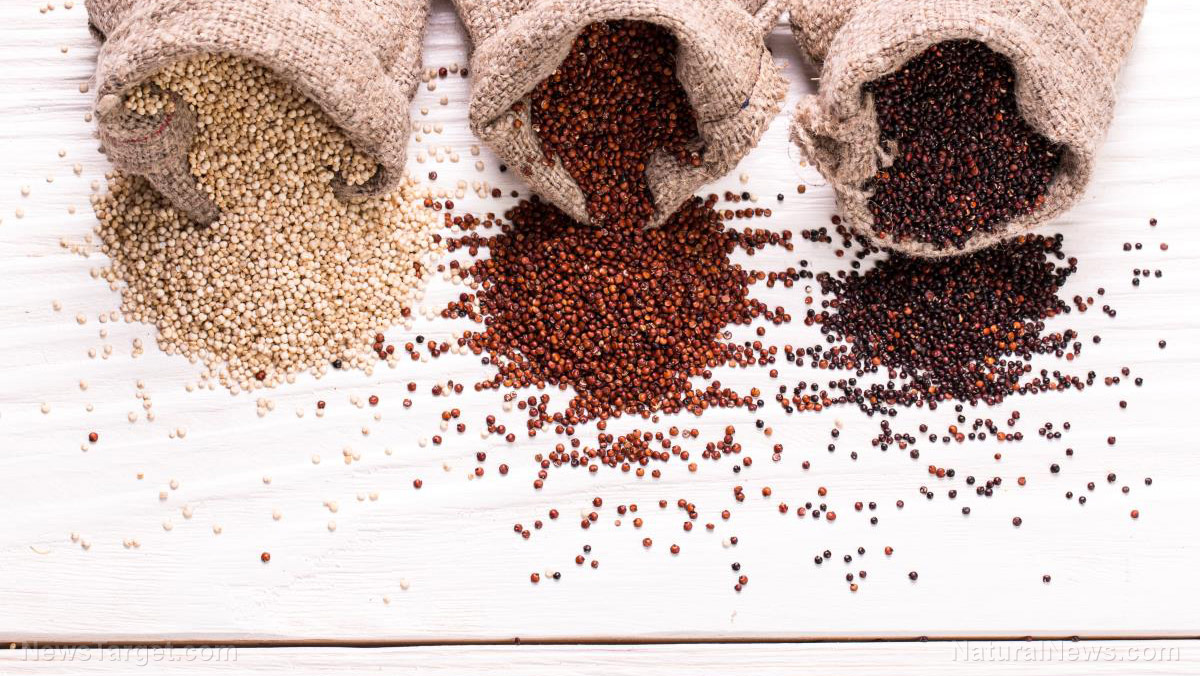
Advertisement
Growing old is inevitable and is a part of life. Contrary to what most plastic surgeons and cosmetic companies say, aging is not something you should be worrying about. By taking constant care of both your mind and body at present, you can age gracefully and enjoy happier, healthier years in the future.
While it is true that you can’t slow down time, you can slow down the signs of skin aging. You can take advantage of the anti-aging properties of quinoa seeds and save yourself from wrinkles.
Compounds in quinoa can extend the lifespan of worms
A recent study involving nematode worms called Caenorhabditis elegans revealed that eating gluten-free, protein rich, low-calorie quinoa seeds can help slow down aging and improve metabolism.
A team of researchers from Rutgers University and the North Carolina State University Plants for Human Health Institute (PHHI) examined phytochemicals in quinoa called phytoecdysteroids, particularly a compound called 20-hydroxyecdysone (20HE). This plant compound is the main phytoecdysteroid present in quinoa seeds.
The researchers determined the “healthspan” of the C. elegans worms by observing the effects of quinoa on their lifespan, movement, advanced glycation end products, pigments and reactive oxygen species. C. elegans worms are transparent — which makes their cellular activities easier to observe — and have a short lifespan. Because some of their metabolic genes are similar to mammals’, C. elegans worms are the perfect specimens to use for aging studies.
The researchers fed the nematode worms with leachate, the phytoecdysteroid-enriched quinoa seed preparation. This increased the average lifespan of the organisms from nine to 11 days as well as gave them enhanced locomotion.
“Leachate is the liquid that passes through the substance and absorbs soluble components from it,” explained Slavko Komarnytsky, co-author of the study.
They saw significant reductions in levels of advanced glycation end products pigments and lower levels of body fat and reactive oxygen species. Advanced glycation end products build up during aging and are said to play a part in the rise of oxidant stress and inflammation.
The findings of the study, published in the Journal of Functional Foods, showed that eating quinoa slowed down the aging of C. elegans and improved the organism’s metabolism. These were done through enhancing factors such as lifespan and locomotion as well as reducing negative factors like advanced glycation end products pigment, reactive oxygen species and lipid accumulation as a direct result of quinoa consumption.
The researchers explained that these results may be applicable to higher organisms because the genes of C. elegans have the same sequence as many mammalian genes associated with key metabolic pathways.
“Our findings corroborate reports from mammalian studies that 20HE treatment reduces lipid accumulation in animals. Collectively, these results suggest that supplementation with 20HE-containing quinoa preparations may promote metabolic health in C. elegans through a conserved mechanism that may be extrapolated to humans,” the researchers wrote.
The results of this study indicate that eating quinoa every day may improve different aspects of health and wellness among aging populations.
Fast facts about quinoa
Quinoa is a plant that belongs to the same family as beets, chard and spinach. It’s seeds are a great substitute for bulgur wheat, couscous and rice. Quinoa has two types – red and creamy white. It has a slightly bitter taste when cooked and opens up to release little white curls as it softens. Quinoa has been grown in South American countries like Peru, Chile and Bolivia for thousands of years. It even became the staple diet of the Incans and their descendants.
Quinoa is rich in nutrients. In fact, the United Nations named 2013 as the “International Quinoa Year” in recognition of quinoa’s high nutrient content. It has two times more protein than rice or barley; is a great source of calcium, magnesium and manganese; and contains some B vitamins, vitamin E and dietary fiber. Quinoa also contains all nine essential amino acids and small amounts of omega-3 fatty acids. Eating it is said to be beneficial for overall health.
Read more stories on aging and how to live longer at Longevity.news.
Sources:
Advertisements







